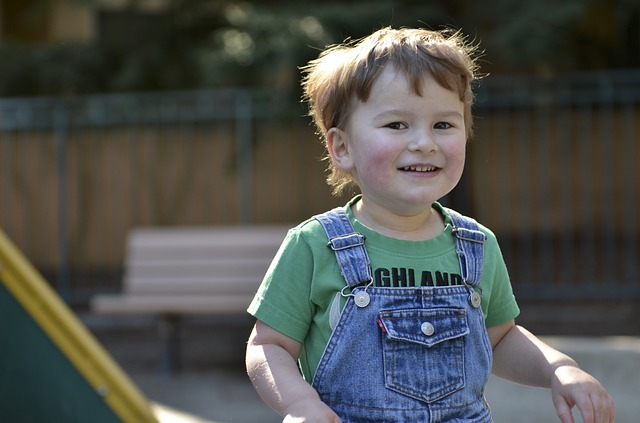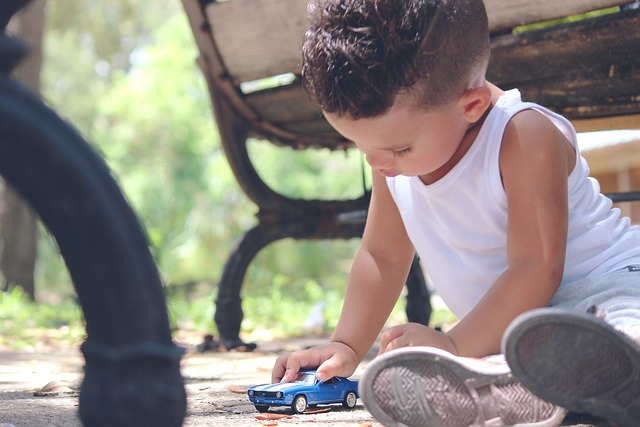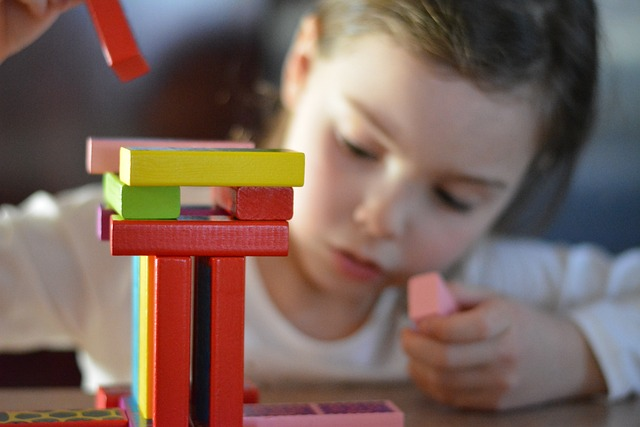
Are you concerned about your toddler’s development but unsure what’s considered ‘normal’ and what’s not? You’re not alone. Many parents question their child’s behavior, wondering if it might indicate a deeper issue. Autism Spectrum Disorder, commonly known as autism, often begins to show signs in the toddler years. This article will guide you through the early signs of autism in toddlers, how to recognize them, and what steps you can take to support your child’s development.
What Is Autism and How To Detect It?
Autism Spectrum Disorder (ASD) is a developmental disorder that affects social interaction, communication, and behavior. While the signs can vary significantly from child to child, they usually become apparent between 18 and 24 months. Some children might even show symptoms in their first few months of life. Understanding these signs early on can lead to more effective interventions and better developmental outcomes.
While every child is unique and develops at their own pace, it’s essential to recognize when something might be a sign of a more significant issue. This article will explore the early signs of autism in toddlers and effective coping strategies for parents and caregivers.

3 Early Behavioral Signs of Autism
Social Challenges
Lack of interest in other people: Many parents look forward to when their child starts interacting with them and the world. If your toddler doesn’t seek out these interactions or seems indifferent to social engagement, that could be a sign worth exploring.
Absence or delay in mimicking expressions: Facial expressions are the earliest forms of communication. Most toddlers start mimicking smiles, frowns, and other facial gestures quite early. If this behavior is absent or delayed, it might indicate a developmental concern.

Communication Difficulties
Delay in, or lack of, spoken language: Every child develops at their own pace, and some children talk later than others. However, a significant delay in speaking, or the absence of words, should be investigated.
Inability to initiate or maintain a conversation: Toddlers are naturally curious and often start back-and-forth babbling as a precursor to conversation. If your child struggles with these exchanges, it may be an early sign of autism.
Repetitive Behavior
Hand-flapping, rocking, or spinning: Children often engage in repetitive behaviors for comfort or sensory stimulation. However, excessive repetitive movements, such as hand-flapping, rocking, or spinning, could indicate autism.
Preoccupation with lights or moving objects: While many toddlers can be fascinated by certain sights and sounds, an obsessive focus on specific items like lights or fans could be an early warning sign.

6 Early Non-Behavioral Signs
Unusual Sensory Behavior
Over- or under-sensitivity to pain, noise, and lights: Sensory experiences form the cornerstone of toddlerhood—from the joy of touching different textures to the delight in colorful sights. However, if you notice that your toddler has extreme reactions to sensory stimuli, it could be more than just a quirk. Some children with autism experience heightened sensitivities, like wincing at soft sounds or avoiding certain textures altogether, while others may show an unusual lack of response even in stimulating situations.
Motor Development Delays
Difficulty with skills like buttoning or using crayons: Toddlers constantly learn to navigate the world, and motor skills are a big part of that journey. So, when a toddler finds it challenging to perform tasks like buttoning their shirts or holding a crayon, it may be easy to pass it off as “they’re just not there yet.” However, consistent struggles with such fine motor tasks—particularly if other signs accompany them on this list—may necessitate a closer look.

Cognitive Indicators
Issues with imaginative play or understanding abstract thoughts: Imaginative play is not just an amusing activity; it’s a crucial developmental milestone that helps children understand roles, rules, and the power of imagination. If your toddler shies away from engaging in imaginative play or seems unable to grasp abstract ideas, you might initially think they’re just not interested. However, this lack of engagement can also indicate cognitive developmental delays often accompanying autism.
Gastrointestinal Issues
Frequent upset stomach, constipation, or food sensitivities: While tummy troubles can be pretty standard among toddlers, a pattern of ongoing gastrointestinal issues could signify a more significant issue. Although not directly a symptom of autism, many parents and clinicians have observed a notable frequency of gastrointestinal problems in children with autism. If you notice your child consistently battling an upset stomach alongside other signs on this list, it might be worth discussing with a healthcare provider.
Sleep Disturbances
Trouble falling asleep, staying asleep, or erratic sleep patterns: Sleep is essential for everyone, but it’s especially critical for toddlers in a prime developmental phase. While it’s common for toddlers to resist bedtime or wake up in the middle of the night, ongoing sleep disturbances can be exhausting for everyone involved and may signal underlying issues. Inconsistent sleep isn’t exclusive to autism, but it frequently occurs in children on the spectrum and can exacerbate other challenges.

Emotional Regulation
Unusual mood swings, high anxiety levels, or frequent meltdowns: The toddler years are often called the “terrible twos” for a reason—emotions can run high, and patience can run low. However, if you find that your child’s mood swings or anxiety levels seem unusually high, or if meltdowns become a regular occurrence, it might be time to explore further. Emotional regulation difficulties can be a non-behavioral sign that could point to autism or other developmental concerns.
Importance of Early Detection
Recognizing the early signs of autism in toddlers is a critical first step, but it’s just that—a step in a journey that ideally includes early intervention. Early detection enables families to begin intervention services that greatly benefit a child’s cognitive, emotional, and social development. Think of it as setting the course for a ship; a slight change in direction early on can lead to a vastly different destination.
Early intervention isn’t just beneficial for your child; it’s also a way to gain valuable resources and support for the whole family. Programs often educate parents and siblings on how best to interact with their family member who has autism. Plus, it connects you with a network of families navigating similar challenges, creating a sense of community and shared understanding.
Screening Tools and Assessments
Various tools have been developed to help parents and professionals identify the early signs of autism in toddlers. One popular choice is the M-CHAT (Modified Checklist for Autism in Toddlers), a questionnaire designed to pick up on social and communicative behavior typical for children on the spectrum. But it’s crucial to remember that these tools are just a starting point.
Another commonly used tool is the ADOS (Autism Diagnostic Observation Schedule), generally administered by a trained healthcare professional and involves observation and interaction with the child. Tools like the M-CHAT and ADOS are valuable but have yet to be definitive. They can point to the need for further evaluation and guide healthcare providers in determining the best course of action. In other words, they can provide direction but are not the final destination.

When and How to Seek Professional Help: A Guide, Not a Verdict
If you observe multiple signs that raise concerns, the most crucial next step is to consult a qualified healthcare provider for a thorough evaluation. But this step is often easier said than done. The wait for an appointment can be agonizing, filled with “what ifs” and worst-case scenarios. Yet, it’s essential to go through this formal evaluation process for a definitive diagnosis and subsequent treatment plan.
Remember, you’re far from alone on this journey. Many families have navigated this challenging path and have found answers, practical strategies, and community support. Seeking help is a sign of strength and advocacy for your child, not an admission of defeat or desperation. The earlier you do it, the sooner you can access valuable resources to improve your child’s quality of life and ease your worries.

Strategies for Parents and Caregivers
The Hanen Program: More Than Words: A parent-focused approach. This program provides practical steps to improve your child’s social and communication skills.
PECS (Picture Exchange Communication System): This system uses pictures to help children communicate more effectively.
ESDM (Early Start Denver Model): This program combines behavioral and developmental principles to improve symptoms and quality of life.
Conclusion
Navigating the world of early signs of autism in toddlers can be overwhelming, but you’re not alone. By arming yourself with information and seeking professional guidance, you can support your child in the best way possible.
Do you have a personal experience you’d like to share or a question you’d like answered? The conversation doesn’t have to stop here. Feel free to share your thoughts and questions; your insights could make a real difference for someone going through this journey.


Leave a Reply